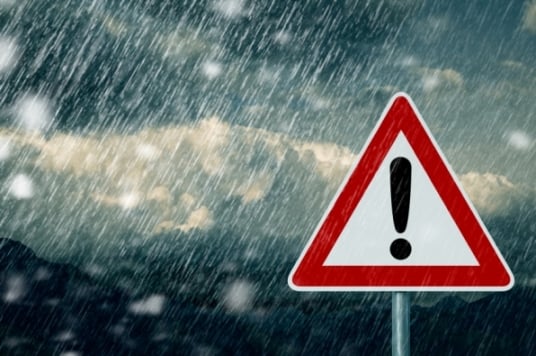Following the warnings issued by Environment Canada regarding inclement weather, the
Insurance Bureau of Canada (IBC) is encouraging Atlantic Canadians to brace for extreme weather.
Not long after a disruptive weather event left tens of thousands of Nova Scotia residents without power, Environment Canada has issued a new winter storm warning to several parts of Atlantic Canada. Affected areas can expect rain, strong winds with severe gusts, and heavy snowfall.
“The first priority is to ensure the safety of yourself and your family,” IBC government relations manager Tom O’Handley said in a release. “That’s why we want to help make sure that Atlantic Canadians are prepared and ready for when bad weather strikes. Monitor local weather conditions, listen to local authorities, and have a plan in place to keep you, your home, and your family safe.”
In its release, the IBC outlined several tips for homeowners that could help prevent serious winter storm-related damage to their properties.
Some of these tips include:
- Check your property for tree branches that may have been weakened from last week’s storm and try to mitigate and reinforce damage that has not yet been repaired.
- Secure holiday decorations.
- Store valuable items in upper floors of your home, away from the basement.
- Test and maintain smoke detectors and carbon monoxide detectors.
- Ensure your furnace, wood stove and any other heating sources are in good working condition.
- Anchor interior and exterior fuel tanks to the floor or base with a tank stability bracket. A fuel tank can tip over or float in a flood, causing fuel to spill or catch fire. Make sure vents and fill-line openings are above flood levels. For propane tanks, contact the propane company on best storage methods.
- Run water through all plumbing fixtures regularly to prevent freezing.
- Test plumbing shut-off valves to ensure proper functioning.
- If safe to do so, check your eaves troughs and roof for potential ice dams
- Prevent freezing of pipes by fitting exposed pipes with insulation sleeves or wrapping.
- Review your emergency plan with your family.
- Assemble an emergency supply kit, including being ready for 72 hours without electricity.
- Prepare a detailed home inventory.
- Pay attention to local authorities and monitor weather developments regularly.
- If it is safe to drive, remember to slow down and drive for the road conditions.
In December, an intense low-pressure system found its way into the Gulf of St. Lawrence during the holidays, causing winds with speeds of up to 110kph to batter Nova Scotia. The strong gusts led to outages across the province, leaving around 74,000 residents without power.
Related stories:
Overall disasters slump, but North America takes huge hit
IBC lauds Ontario government for climate change provisions


